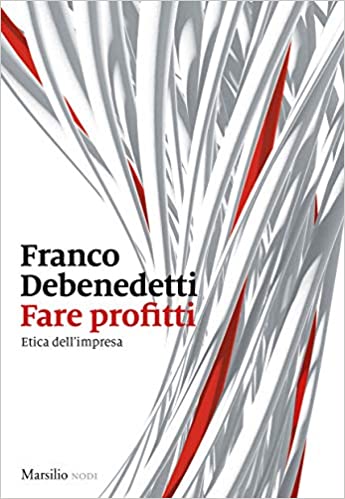![]()
Al viaggiatore che, sceso dall’aereo a Londra di prima mattina il mercoledì 18, avesse preso la sua quotidiana copia del Financial Times, saranno strabuzzati gli occhi: una copertina giallo canarino a racchiuderlo, recante un solo titolo, a caratteri cubitali (tipo “Fate Presto”, tanto per capirci): “Capitalism, time for a reset”. Che cosa si debba intendere (“reset” si traduce con ripristinare o con azzerare) lo spiega sul retro una lettera del direttore Lionel Barber: la ricerca di massimizzare il profitto, la dottrina della shareholder value è sotto pressione, da oggi profitto sì ma con una finalità (purpose). Un autentico cambio di paradigma: chi da decenni ha letto il FT come la bibbia del libero mercato nel Paese dell’IRI prima e della CDP oggi, come la voce del mercato finanziario moderno nel Paese del capitalismo delle scatole cinesi e delle partecipazioni incrociate, ha ben di che strabuzzare gli occhi.
leggi il resto ›
Archivio per il Tag »financial times«
![]()
Philip Stephens is correct: there is certainly no bigger mistake than to confuse cause and effect (“Europe must set its own digital rules”, August 9). But if Europe lags behind the US in the knowledge economy, and now in the race for artificial intelligence, that is the cause of its lacking “companies of sufficient scale to compete with the Americans”, of its struggling “to nurture a culture of innovation”, and of not producing “enough top-flight computer scientists”; in no way can it be the effect. Companies don’t grow, and people don’t choose, in a vacuum.
leggi il resto ›
Italy is, according to David Folkerts-Laundau (“Europe must cut a grand bargain with Italy”, FT November 13, 2018), a “frugal country”: and not because of its private savings, but because of its legacy debt predating the euro, and of its long history of primary budget surplus. Is it really?
leggi il resto ›
Sir, According to Bill Emmott (“Five Star struggles to be Italy’s agent of change”, February 9), the Five Star Movement is the Italian En Marche. It might be appropriate to recall some of its proposals for the upcoming election.
It wants to repeal the Fornero pension reform, which in 2011 saved Italy, then on the brink of bankruptcy, and reduce the age of retirement; to abolish mandatory vaccination of children; to allow the deficit to rise above 3 per cent of gross domestic product and to abolish commitment to a balanced budget (a constitutional mandate which has never been obeyed). On public debt its “theory” is that it is a macroeconomic problem only because it is denominated in euros: it therefore proposes to redenominate it in lire, placing the Bank of Italy once more under the control of the Treasury, obliging it to buy the debt that would not be financed by the market.
If these policies resemble those of Emmanuel Macron’s movement, your previous reporting on French politics seems less than accurate.
leggi il resto ›
A few years ago I was at a conference discussing the woes of the single European currency, when a central bank official reached into his pocket and flung a euro note on the table. “That’s what’s wrong with Europe,” he declared, pointing to the crumpled piece of paper. “It’s just windows and bridges!”
leggi il resto ›

Sir, According to Massimo Mucchetti’s “proposal for Telecom Italia’s network” (Letters, March 29), all the “interested parties”, ie Telecom Italia, Enel and Metroweb, should “contribute their fixed networks” to a “New Company (NC) to be floated on an exchange”. Senator Mucchetti is keen to stress that his proposal is not to nationalise the network. However, he fails to provide further details: the terms and conditions at which the networks will be transferred to the NC and what the NC will charge for the use of network by the “interested parties”.
leggi il resto ›






